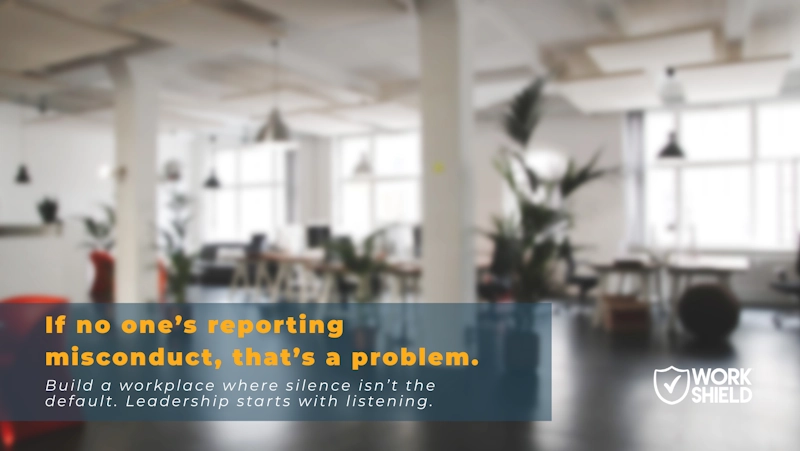We have a three-year old Wheaten Terrier named Hazel. She’s driving me crazy. She barks at every every walker, biker and car that drives by, she tears through the house in circles for no reason, and thinks because COVID-19 has forced us to work from home, all I need to do is take her for walks, make her food, rub her belly and play catch.
My wife and Work Shield Co-founder, Jennifer, and I also have two children under the age of 12 who, while better behaved than Hazel, have even more demands and needs. As they should! They are young human beings and deserve everything I can muster – walks, meals, games of catch, cards, love, guidance, even schooling!
I used to think I was a pretty successful working parent. But working from home has taught me that being a real working parent means you are the family’s default parent. For everything and all the time. And regardless of family circumstances, it seems this responsibility of being the primary default parent more often than not falls to just one person. In our house, it is not me
I have a new appreciation, respect for and understanding of my wife, employees and all the working parents out there who are doing it for real. It’s a good thing, too, because COVID-19 has created a lot more problems for working parents (and for employers) than we’ve ever seen before.
For now, state and local COVID-19 restriction mandates have required employers to adapt to employees working from home. But as we begin the transition out of pandemic-mode and ultimately move past it, if we want to continue protecting our companies and our cultures, retain our top talent and successfully rebuild or continue building our companies, we have to make broader cultural changes that address our working parents’ complicated situations.
Being a Working Parent Looks Different After the Pandemic
As employees re-enter the physical workplace, working parents will face new challenges such as lack of childcare, concerns about contracting COVID-19, and increasing mental health concerns. On a much larger scale, this experience has revealed the state of our collective consciousness as it relates to working and parenting – the two are still at odds.
Chloe Cooney writes in her article The Parents Are Not All Right:
Viruses, or in this case, global pandemics, expose and exacerbate the existing dynamics of a society — good and bad. They are like a fun-house mirror, grossly reflecting ourselves back to us. One of those dynamics is the burden we put on individual parents and families. We ask individuals to solve problems that are systemically created. This current situation is almost prophetically designed to showcase the farce of our societal approach to separating work and family lives.
The truth is, as much as we have touted the benefits of balancing, and in some cases separating, our professional and personal lives, the two don’t exist in separate buckets. If either are to be their most successful, they have to co-exist. In the words of Emily Oster, economist at Brown University, in order for them to co-exist,
We need to normalize the experience of parenting while working.
In the midst of COVID-19, never before has the need to create a system that allows us to simultaneously parent while working and work while parenting been revealed so dramatically.
Jump on the Bandwagon
As organizations, and as leaders of these organizations, we must get on board with a shifting cultural dynamic to find ways for parenting and working to co-exist.
Bringing our Whole Selves to Work Whether your organization is a small, six-person team or exceptionally large, culture starts at the top. If, as business owners and managers, we acknowledge that we are more than our work selves, it will encourage our employees to follow suit, allowing them to bring their whole selves to work – the good, the bad and the ugly. When we open these lines of communication and vulnerabilities, employees are happier, culture improves, turnover decreases and productivity increases.
Flexible Work Schedules and Locations Offering flexible work schedules and remote working is nothing new as a consideration for our employees, and particularly for working parents. But now, in a culture that has faced almost nationwide quarantine, we know it can be done. And in many cases, be done successfully. Moving forward, it will certainly be harder for employers to claim that working from home is not a reasonable accommodation for certain employees.
While the pros and cons of working from home is fresh on all of our minds, employers should plan to engage employees in a dialogue now about remote working – what works, what doesn’t work, and what could work better for their organization. From there, develop a plan that will provide employees with greater flexibility in the future that acknowledges their whole selves, both working and parenting.
Parental Paid Leave Many organizations are required to provide paid leave to families through the Families First Coronavirus Response Act (FFCRA), but outside of COVID-19 requirements, the majority of U.S. organizations still don’t offer paid leave for their new parents. Offering paid leave for working mothers and fathers shows that you respect them and care about their families’ well-being. Recognizing the needs of employees and their families fosters the co-existence of working and parenting. It also improves engagement, culture, employee retention, and productivity.
According to a study for the March of Dimes Center for Social Science Research, U.S. states that have already implemented paid-leave policies found a 20 percent reduction in the number of female employees leaving their jobs in the first year after giving birth—and up to a 50 percent reduction after five years. For women without paid parental leave, nearly 30 percent dropped out of the workforce within a year after giving birth and one in five did not return for over a decade.
Treating Working Parents Unfairly is Costly
While embracing the responsibilities of working parents from cultural and organizational standpoints is crucial, it’s also a matter of legal responsibility.
While not officially a protected category under the Equal Employment Opportunity Commission (EEOC), the organization uses the term “caregiver discrimination” to illustrate circumstances in which stereotyping or other forms of disparate treatment may violate Title VII or the prohibition under the ADA against discrimination based on a worker’s association with an individual that has a disability or caregiver needs.
The EEOC has even issued guidance that caregiver discrimination might also constitute sex, disability or age discrimination. For example, in May 2019, the EEOC obtained a $5M settlement from JP Morgan Chase due to their discriminatory parental leave policies by providing men less parental leave (caregiver leave) than it did women. Estee Lauder was fined $1.1M in July 2018 under similar circumstances. These employers were held liable at great cost to their bottom lines and their companies’ cultures.
While there is no federal law expressly prohibiting caregiver discrimination, when you combine Title VII, ADA, Equal Pay Act, and Family and Medical Leave Act (FMLA), working parents have real protections, especially when faced with limited access to childcare over the coming months.
Now, there is even more protection in place for working parents via the Families First Coronavirus Response Act (FFCRA). This new COVID-19-specific regulation requires certain employers to provide employees with paid sick leave or expanded family and medical leave related to the disease through December 31, 2020. At least one suit has already been filed under the FFCRA – a former Eastern Airlines executive recently accused the company of retaliation when she was fired just days after she asked for leave to care of her 11-year-old son. It won’t be the last.
The US Chamber of Commerce provides a succinct guide to FFCRA eligibility requirements here, and an extensive FAQ can be found here.
To ensure your company is protecting itself and its employees, take a minute to review your current policies and procedures with an eye on the following guidelines:
- Provide an equal amount of caregiver/parental leave time to all parents
- Clearly distinguish between pregnancy-related disability leave for birth mothers and general caregiver/parental leave available to all parents
- Avoid gender-based terms in leave policies like “primary” or “secondary” caregiver or “mothers” and “fathers”
- Promote a workplace culture that encourages parents of all sexes to provide care to their children during this pandemic and, if receiving discriminatory actions or harassment, encourage them to raise their voice and be heard.
- Ensure your company has a system in place that allows for proper reporting and investigating of potential discrimination and harassment incidents. Ideally, a system that provides for timely resolutions and unbiased investigations.
Protecting Your Company and Employees Now
As noted in a recent Forbes article,
How we adapt to the pandemic now and prepare for post-pandemic circumstances will undoubtedly impact our long-term cultural and overall organizational health. From witnessing first-hand my own family day-in and day-out during this quarantine, I’d say systemic cultural changes that redefine the relationship between working and parenting are long overdue.
About Jared Pope
Jared is Founder and CEO of Work Shield, the only start-to-finish workplace harassment and discrimination reporting, investigation and resolution solution that protects employees, employers and cultures at the same time. Jared practiced law and ran a practice focused on human resources, ERISA, benefits and employment matters for over 15 years and is a knowledgeable resource on workplace culture and harassment and discrimination issues.
Connect with him on LinkedIn.





